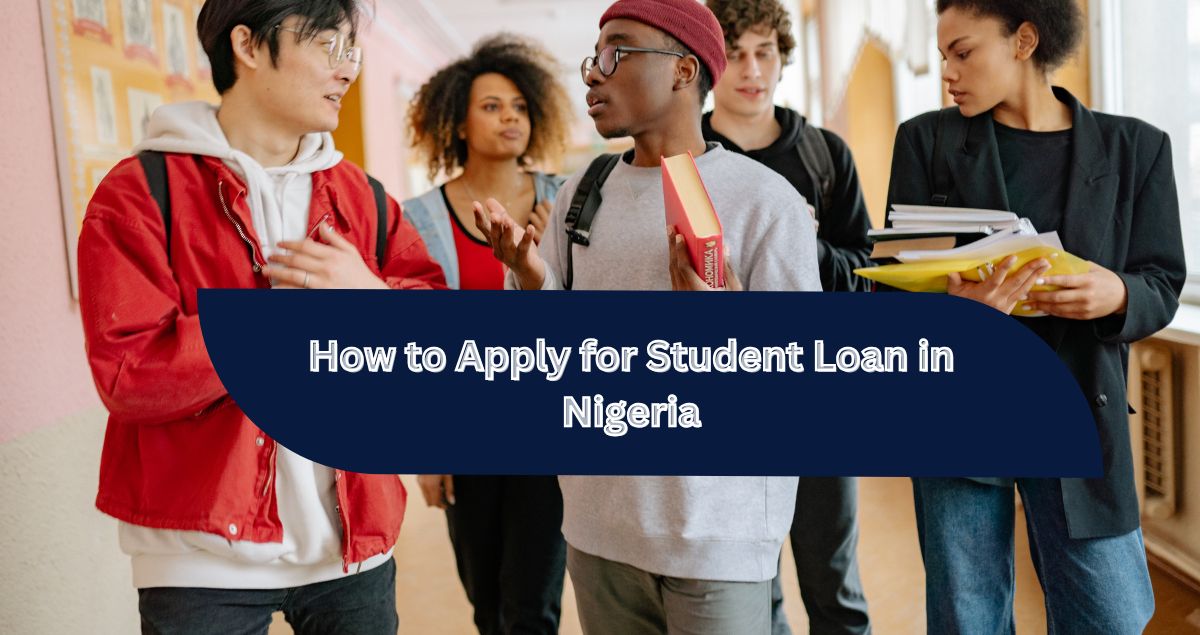
Facing the financial burden of higher education can feel overwhelming. Many Nigerian students worry about how to pay tuition and upkeep fees in public tertiary institutions. If you’re one of them, you’re not alone. That’s why understanding how to apply for student loan in Nigeria is more than just a process—it’s the key to unlocking opportunities.
In this comprehensive guide, you’ll find everything you need to navigate the Nigerian Education Loan Fund (NELFUND)—from eligibility criteria to required documents, application steps, and repayment terms. We’ll also cover alternative solutions for private universities and international students. With a conversational tone and real-life examples, you’ll feel empowered to secure funding confidently.
The NELFUND Student Loan: What You Need to Know
The Nigerian Education Loan Fund (NELFUND) is a government-backed initiative designed to ease the financial challenges of higher education. Established under the Student Loans Act, 2024, NELFUND offers interest-free student loans Nigeria to eligible students at public universities, polytechnics, colleges of education, and vocational training schools.
Key Features:
- No requirement for a guarantor or family income threshold.
- Covers tuition fees and a monthly upkeep allowance.
- Backed by the federal government, ensuring transparency and security.
- Enforced through the Global Standing Instruction for easy repayment.
These benefits make NELFUND student loan an attractive option compared to many private student loan Nigeria options, which often come with high interest rates and stricter requirements.
Who Can Apply? NELFUND Eligibility Criteria
Before you dive into the application, it’s important to confirm that you meet the NELFUND eligibility criteria. Here’s what you need to qualify:
- Must be a Nigerian citizen.
- Enrolled in a public tertiary institution (university, polytechnic, college of education, or vocational school).
- Hold a valid JAMB admission letter, National Identification Number (NIN), Bank Verification Number (BVN), and a matric number for student loan.
Note: If you’ve ever defaulted on a previous student loan, been involved in exam malpractice, or have a criminal record, you may not qualify. For a smooth application, double-check your JAMB verification for student loan details to ensure accuracy. A student at a federal university who verified her NIN and JAMB details correctly received approval within days—proof that preparation pays off.
Step-by-Step Guide to Applying for the NELFUND Student Loan
This step-by-step guide to NELFUND loan ensures you know exactly what to do at each stage. Here’s how to get started:
- Visit the official NELFUND portal at portal.nelf.gov.ng.
- Select “Apply Now” and click “Get Started.”
- Confirm your Nigerian citizenship and eligibility by answering a few preliminary questions.
- Enter your educational details using your matriculation number and JAMB details.
- Create an account using your email and a secure password. Remember to verify via the email link you receive.
- Log in and update your contact details and bank details (including your BVN for student loan application).
- Request the loan amount, specifying tuition and/or upkeep needs. Upload all required documents (such as your admission letter).
- Submit your application and monitor its status through the student loan portal Nigeria dashboard.
Tip: Before applying, make sure your institution has uploaded your academic data to avoid delays. Some students have completed their fast student loan application Nigeria in as little as 15 minutes by preparing all documents in advance.
Documents Needed for a Fast Application
To speed up your application, gather the following NELFUND loan requirements before starting:
- JAMB admission letter
- National Identification Number (NIN)
- Bank Verification Number (BVN)
- Matriculation number
- Optional but recommended: Student ID card and institution’s invoice
Remember, there’s no application fee and no need to visit an office in person—everything is handled online.
Repayment Terms: What Happens After Graduation?
One of the most common questions students ask is: How does repayment work? Here’s what you need to know about student loan repayment Nigeria:
- Repayment begins two years after completing your National Youth Service Corps (NYSC).
- 10% of your salary is automatically deducted by your employer.
- For self-employed graduates, you’ll remit 10% of your monthly profit.
- In cases of permanent disability or death, the loan is forgiven under the no-cosigner student loan Nigeria policy.
- The Global Standing Instruction ensures smooth, automatic repayment to avoid any surprises.
This system offers flexibility and peace of mind, ensuring your focus stays on your future—not financial stress.
READ ABOUT: NELFUND April Upkeep Disbursement: Everything You Need to Know for 2025
Tips for a Successful NELFUND Loan Application
To increase your chances of approval, keep these student loan application tips Nigeria in mind:
- Apply early: Starting your application as soon as possible can help you avoid delays and secure funding on time.
- Ensure data consistency: Check that your NIN, BVN, and JAMB details match exactly with your school records. Discrepancies can lead to processing delays or rejections.
- Stay updated: Regularly log in to the student loan portal Nigeria to track your application status and respond to any requests for additional information.
- Avoid scams: Use only the official NELFUND portal (portal.nelf.gov.ng). Remember, there is no student loan application fee. Some fraudulent agents may try to charge you unnecessarily.
- Prepare your documents: Have all your required documents ready and double-check them for accuracy. A student who verified her documents beforehand got approved in just a few days.
These tips have helped countless students get their fast student loan application Nigeria approved quickly and efficiently.
Can International or Private University Students Apply?
A common question is whether students at private universities or studying abroad can access the NELFUND loan. Here’s what you need to know:
- Currently, NELFUND student loan is only available to students at public tertiary institutions in Nigeria. If you’re attending a private university, unfortunately, you won’t qualify for this government-backed loan.
- If you’re an international student or planning to study abroad, NELFUND also does not apply. Instead, you might consider private lenders like MPOWER Financing, which offer student loan for international students Nigeria or education loan for Nigerian students abroad.
- Private university students may explore private student loan Nigeria options or seek scholarships, grants, or study abroad loan Nigeria opportunities.
For those needing funding for student loan for Nigerian students in USA/Canada, explore specific international student loan providers that cater to Nigerian students.
Common Questions About NELFUND Student Loans
What If My Application Is Denied?
If your application is denied, don’t panic. You can appeal directly through the student loan portal Nigeria or contact NELFUND’s official support via email. Double-check your documents and eligibility criteria to correct any errors before reapplying.
How Much Can I Borrow?
The NELFUND loan covers tuition fees plus a monthly upkeep allowance of up to N20,000. This ensures students can meet their basic living expenses while studying. This is known as the tuition and upkeep loan Nigeria.
Is the Loan Really Interest-Free?
Yes, the NELFUND student loan is interest-free student loan Nigeria, unlike many private loan options that may charge high rates. This government-backed loan helps students focus on their studies without the stress of accumulating interest.
Why Choose NELFUND Over Private Student Loans?
When comparing loans, consider the best student loans in Nigeria based on your needs. Here’s why NELFUND stands out:
- Interest-free: Unlike private student loan Nigeria, you won’t pay any interest, making repayment easier.
- No guarantor required: Traditional lenders often ask for a guarantor, but NELFUND doesn’t.
- Flexible repayment: With a clear repayment plan, including salary deductions and self-employment reporting, it’s easy to manage repayments.
- Government backing: This ensures transparency, security, and fewer chances of fraud compared to private lenders.
A recent report shows that over 567,000 students have already benefited from NELFUND loans as of June 2025, making it a top choice for affordable education funding in Nigeria.
Conclusion
Securing a NELFUND student loan can make your educational dreams a reality. With its interest-free structure, flexible repayment terms, and easy application process, it’s the most low-cost education loan Nigeria offers to public institution students. Take advantage of this opportunity by preparing your documents, verifying your details, and applying early through the student loan portal Nigeria.
Don’t let finances be a barrier to your education—apply for student loan Nigeria today and take the first step towards a brighter future.






